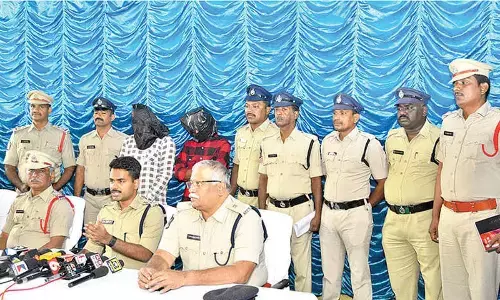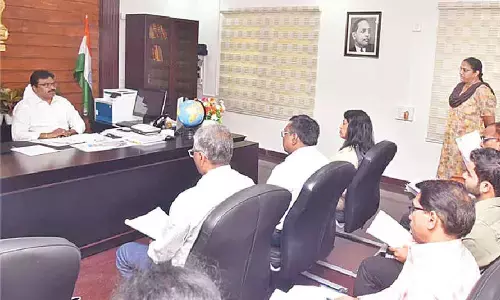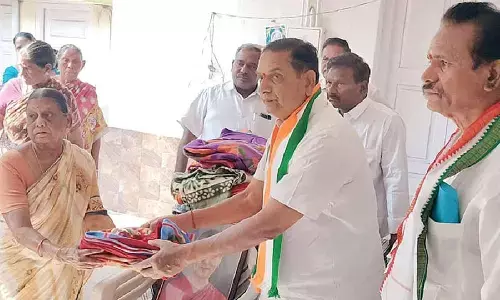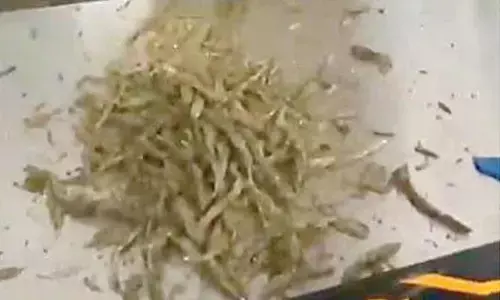More than 400 infected as HIV outbreak sparks panic in Pakistan, accused doctor arrested
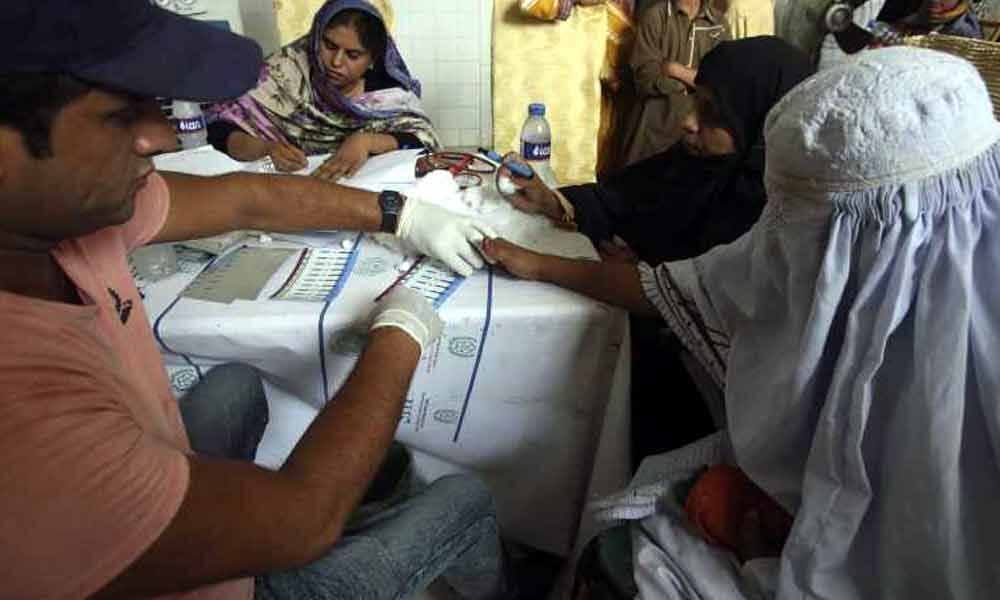
A local doctor who has AIDS has since been arrested and is being investigated for possibly intentionally infecting patients.
RATO DERO : Parents nervously watch as their children wait to be tested for HIV in a village in southern Pakistan, where hundreds of people have been allegedly infected by a doctor using a contaminated syringe.
Dispatched to keep order, police scan the anxious crowd as families hustle into one of five different screening rooms set up in the last month in the village of Wasayo, on the outskirts of Larkana in Sindh province.
Health officials say more than 400 people, many of them children, have tested HIV positive in recent weeks as experts warn of a surge in infection rates across Pakistan, due to the use of unsanitary equipment and rampant malpractice -- often at the hands of quack doctors.
Anger and fear continue to swell in the desperately poor village hit hard by the epidemic, which authorities say could be linked to either gross negligence or malicious intent by a local pediatrician.
"They are coming by the dozens," says a doctor at the makeshift clinic, beset by a lack of equipment and personnel to treat the surging number of patients.
Mukhtar Pervez waits anxiously to have her daughter tested, worrying a recent fever may be linked to the outbreak. For others, their worst fears have already become a reality.
Nisar Ahmed arrived at the clinic in a furious search for medicine after his one-year-old daughter tested positive three days earlier.
"I curse [the doctor] who has caused all these children to be infected," he says angrily.
Nearby Imam Zadi accompanies five of her children to be examined after her grandson tested positive.
"The entire family is so upset," she tells AFP.
Others worry their children's futures have been irreparably harmed after contracting HIV, especially in a country whose masses of rural poor have little understanding of the disease or access to treatment.
"Who is she going to play with? And when she's grown up, who would want to marry her?" asks a tearful mother from a nearby village, who asked not to named, of her four-year-old daughter who just tested positive.
'Helpless'
Pakistan was long considered a low prevalence country for HIV, but the disease is expanding at an alarming rate, particularly among intravenous drug users and sex workers.
With about 20,000 new HIV infections reported in 2017 alone, Pakistan currently has the second fastest growing HIV rates across Asia, according to the UN.
Pakistan's surging population also suffers the additional burden of having insufficient access to quality healthcare following decades of under-investment by the state, leaving impoverished, rural communities especially vulnerable to unqualified medical practitioners.
"According to some government reports, around 600,000 quack doctors are operating across the country and around 270,000 are practicing in the province of Sindh," said UNAIDS in a statement.
Provincial health officials have also noted that patients are at particular risk of contracting diseases or viruses at these clinics, where injections are often pushed as a primary treatment option.
"For the sake of saving money, these quacks will inject multiple patients with a single syringe. This could be the main cause of the spread of HIV cases," said Sikandar Memon, provincial programme manager of the Sindh Aids Control Programme.
The large number of unqualified doctors along with the "reuse of syringes, unsafe blood transfusions, and other unsafe medical practices" have all led to the spike in HIV cases in recent years, explains Bushra Jamil, an expert on infectious diseases at the Aga Khan University in Karachi.
"Rampant medical malpractices without any effective checks and balances are causing repeated outbreaks in Pakistan," said Jamil.
Doctor denies infecting patients
Authorities investigating the outbreak in Sindh say the accused doctor has also tested positive for HIV.
From a ramshackle jail cell in the nearby city of Ratodero, he denied the charges and accusations he knowingly injected his patients with the virus, while complaining of being incarcerated with common criminals.
But for the parents of the newly diagnosed, the ongoing investigation means little if they are unable to secure access to better information and the necessary drugs that can help stave off the deadly AIDS virus.
"We are helpless. I have other children and I am afraid they might catch the disease," says another mother whose daughter recently tested positive for HIV.
"[Please] send some medicine for our children so that they can be cured. If not, all of our children will die, right?"









